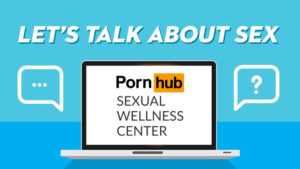SEX, DRUGS, GAY MEN (AND A ‘FAG-HAG’)
2017-02-28
The acclaimed play, The Chemsex Monologues, will hit Adelaide Fringe in 2017. Rachel Cook spoke with director Luke Davies about the show which tackles the phenomenon of chemsex.
In 2015, VICE released a documentary on the world of gay men, drugs and sex called Chemsex. The documentary explored the phenomenon among the UK’s MSM community.
How we tackle chemsex and the surrounding risks is being looked at by health organisations and the media, but The Chemsex Monologues offers another way of looking at the world of chemically enhanced sex, by allowing the audience to meet characters who live in this world.
The UK based Dragonflies Theatre, have managed to produce five plays in their short lifespan. Founded in the summer of 2015 all their shows have been written by playwright Patrick Cash and directed by Luke Davies. Davies says so far all of them have concentrated on LGBTQI issues.
“We’ve made shows about drag culture, about the history of queer activism, and about gay men’s sexual health,” Davies tells Blaze.
Currently, as well as working on The Chemsex Monologues the company is producing a show called The HIV Monologues, which will be performed at the Ace Hotel in London. That play, as well as The Chemsex Monologues, has recently been published by Oberon Books.
“Our aim is to make accessible and engaging theatre about issues affecting the LGBTQI community,” Davies says, “we’re especially keen to reach out to people who might not normally go to the theatre.”
The Chemsex Monologues is a series of five interweaving monologues that span a period of two years. There’s a narrator who is new to the chemsex scene and who finds himself taking G and crystal meth for the first time; a club night poster boy who falls madly in love with a pornstar; Cath, a fag hag who is looking to celebrate being single on Valentine’s Day with her best friend Steve and a sexual health worker who takes a bottle of wine to his first chillout party.
Davies said that it was important for them to present the chemsex scene in a non-judgmental way and to steer clear of sensationalism.
“We’ve always felt that it’s not our duty as a theatre company to make a statement about how people should behave, or to issue a health warning,” Davies says.
“Instead, our role is to tell the stories of the people involved in as understanding a manner as possible. That said – we’ve been careful not to downplay the seriousness of the issues involved for many people – and the play tackles head-on difficult subjects like drug dependency, mental health and intimacy issues.”
The ‘fag-hag’ while historically innate in the world of gay men is an often left out character in queer theatre. Davies says when Cash was researching the play and interviewing people involved on the chillout scene – people often spoke about characters like Cath.
“I think she’s a brilliant addition to the play, because she offers an outsider’s insight. She’s got a two year old daughter, but has arranged for her to be looked after so she can spend the night with her best friend Steve. She’s not expecting a night of chemsex – but she has in the past been to chillouts with Steve so she’s not phased,” Davies says.
“Her insight is interesting because having had a kid, she hasn’t been on the scene for a while – and she sees how it’s evolved so that it’s less of the party vibe and more about the sex. Her concern for Steve, who has started injecting and has lost a lot of weight, is one of the most touching moments of the play.”
Initially performed at the King’s Head Theatre in London in May 2016, The Chemsex Monologues has since been performed elsewhere in the UK since. In all of the performances the audiences have been broad and the feedback has been positive.
“The play has gone down really well. We’ve had great reviews in the UK, and audiences have been really responsive.
“We’ve had people from all walks of life come and see the play – and whether they’ve had first-hand experience of chemsex, or whether they’d just seen a headline about it, the general response has been that the play helped them to better understand the human dimension of an issue that is often discussed in a clinically detached way as an “issue”.”
Davies continues:
“Earlier in 2016 we performed the piece for healthcare professionals at the European Chemsex Forum. That was a bit nerve wracking, but in the end I think they were one of the most appreciative audiences we’ve had.”
While artists and critics will always debate the issue of ‘the responsibility of the artist’ when tackling controversial issues, how realistic is it to avoid the dangers of chemsex? There’s a fine line between opening up an experience to an audience and battering them over the head with rhetoric. Davies says he hopes audiences come away with a deeper understanding of why people are attracted to chemsex.
“I think we’re keen for audiences to recognise that there’s a lot about the chemsex scene that is troubling, and that sometimes people are drawn into it for the wrong reasons. But hopefully the play doesn’t leave audiences feeling despondent about these issues, or that combining sex and drugs is an inherent evil.
“I’d like to think that the play encourages a positive response: without shying away from the sometimes destructive impact of chemsex, it asks what can be done collectively to caution against these dangers. Hopefully it does this without demonising or attempting to enforce some kind of behavioural code.”
The Chemsex Monologues heads to Australia in 2017 for the Adelaide Fringe Festival followed by a season in Sydney, after that it’s back to London with a different cast followed by (a yet to be confirmed) season at the Edinburgh Festival Fringe.





